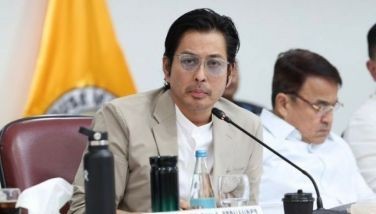Mistrust

ATLANTA Flying out of Basel, Switzerland last Tuesday morning on a KLM flight, it took me about five minutes to check in my luggage. In Amsterdam’s Schiphol International Airport it took five minutes to clear immigration.
Transferring to an Atlanta-bound flight on US carrier Delta Airlines, boarding procedures ate up two of my three-hour airport layover.
After going through that scanner where I think your naked outline can be seen and then being patted down, all the passengers waited in line, two hours before departure, because each one had to be questioned before boarding.
The grilling, lasting several minutes, was a longer version of the standard airline questions on whether you yourself packed your luggage and did not receive stuff from anyone else to carry on before boarding. The Delta folks were equal-opportunity interrogators; whether traveling on business class or coach, all passengers had to face grilling.
Although the interrogators were polite, some of the questions could raise complaints about privacy violations. But because passengers suspected the reason for the heightened security, everyone cooperated and I heard no complaints.
It was, after all, a US carrier, it was bound for the United States, and Schiphol had been a boarding point for some terrorists apprehended in the past. The Atlanta-bound flight would have been a plum target for any self-respecting terrorist.
No passenger dared whisper the name Osama bin Laden, or mention al-Qaeda or “terror” or “bomb.”
Passengers on US carriers and US-bound flights, I suspect, would be more uneasy if security procedures are less than thorough in the days after the killing of the world’s most wanted terrorist.
The security procedures still weren’t as bad as in the days after the terror attacks on Sept. 11, 2001. Two weeks after the attacks I was in Honolulu, home of the US Pacific Command, for an East-West Center exchange program. Flying to California in early October, it took me nearly four hours of waiting in line to clear security in Honolulu and board my flight on a US carrier.
The paranoia that would dampen global sympathy for Americans over 9/11 was just starting at the time. Perhaps it was mere coincidence, but the other participants in my fellowship who looked like South Asians or Middle Easterners were all given middle seats, sandwiched between burly white guys who spoke American English.
This time people know enough not to succumb to paranoia or at least not too much, since a bit of paranoia can be useful when it comes to security.
At the hotel where I stayed in Basel, the Internet service crashed on the last night of my stay (the reason I failed to file a column), and it was still out as I left for EuroAirport many hours later. For me the glitch was inconceivable in a land where everything works with clockwork precision and efficiency. I immediately thought of al-Qaeda. It had penetrated several Western European countries; why not Switzerland? But the glitch was not-city wide, and the hotel blamed the Internet provider, GANAG. At Basel’s EuroAirport, there was no heightened security.
* * *
Nearly 10 years after 9/11, people also know enough to avoid racial profiling.
After the capture of the American Taliban and the shoe bomber, after terror attacks and plots from London to Spain to Bali, people know that anyone can be a terror suspect: American and non-American alike, white, black, Arab, South and Central Asian.
The terror threat has become globalized. Filipinos and others of the same Malay gene pool can be suspect. Southeast Asia has Jemaah Islamiyah, and no one is sure how closely it is linked to al-Qaeda. JI Bali bombing mastermind Umar Patek, long thought to be hiding in Mindanao, was apprehended earlier this year in what do you know Abbottabad, the same garrison town in Pakistan where Bin Laden and two of his most trusted aides were killed.
A news report listed the Philippines as one of a few countries where al-Qaeda operated, and which Bin Laden wanted as part of his pan-Islamic state.
Pakistan is getting unusual attention these days as more details emerge about Bin Laden’s stay in a fortified compound valued at $1 million in Abbottabad, within spitting distance of Pakistan’s equivalent of West Point.
On Sunday night in Basel I told a Pakistani on business in the city that I visited his country in late 2006 on the invitation of his government, which wanted to dispel international perceptions that Islamabad was harboring terrorists. The Pakistani, an outspoken man, scoffed at the perception.
The next morning, hours after news broke about Bin Laden’s killing, the Pakistani had nothing to say, just like Islamabad shortly after the raid in Abbottabad.
During my 2006 visit, which took me from Karachi to Peshawar to Islamabad and Lahore, Pakistani military and diplomatic officials showed what their government was doing in the battle against terrorism (carried out with annual assistance of $1 billion from Uncle Sam). They all insisted that Bin Laden could not be in their country.
The officials did acknowledge the difficulty of keeping out troublemakers from the porous mountain border between Afghanistan and Pakistan a protected tribal area where people of both countries speak the same dialect.
Once past the border, Afghans can travel anywhere in Pakistan. Millions of Afghans have entered that border region. At the time of my visit, about 8,000 Pakistani troops were posted at the border.
The tribal area was believed to be where most of the Taliban leaders and supporters took refuge following the US-led bombardment after 9/11.
Today US officials are openly wondering whether Islamabad or at least certain elements of its military harbored Bin Laden, and whether this was done to ensure, among others, a continuation of that $1-billion annual aid.
Security cooperation is frayed, and Pakistan is now described as a US “frenemy.” But US officials probably realize that this is a case of can’t live with them, can’t live without them. It would be worse for Washington to cut off security cooperation with a country that borders Afghanistan and is believed to be undertaking a rapid buildup of its nuclear arsenal.
Can these guys be trusted? Suspicion and mistrust, manifested in many ways including airport security checks and international alliances, are among the tragic consequences of Osama bin Laden’s reign of terror.
- Latest
- Trending



























